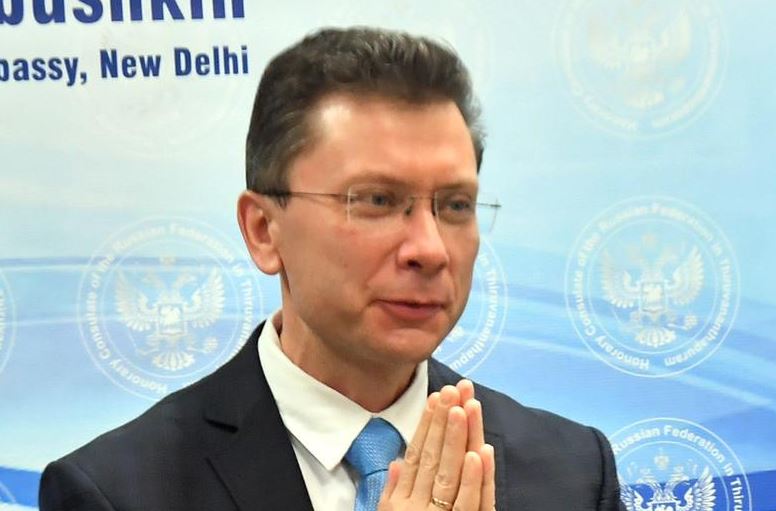In a significant diplomatic maneuver, India and Russia have forged an agreement to establish a system for settling bilateral trade transactions in their national currencies. This landmark decision, announced by Roman Babushkin, Chargé d’Affaires of the Russian Embassy, underscores the evolving dynamics of global diplomacy and economic partnerships.
Historical Context and Economic Implications
Mr. Babushkin hailed Prime Minister Narendra Modi’s recent visit to Russia as “historic and game-changing,” emphasizing the burgeoning economic ties between the two nations. Despite Western pressures and sanctions following Russia’s military operations in Ukraine, bilateral trade, especially in energy sectors, has seen substantial growth.
Agreement Highlights: National Currency Settlement System
“The most pivotal outcome of our discussions was the commitment to proceed with the establishment of a national currencies settlement system,” Mr. Babushkin declared. This initiative aims to streamline financial transactions and reduce dependency on international currencies, marking a strategic shift in Indo-Russian economic relations.
Diplomatic Engagements and Political Stances
During Modi’s visit, discussions also revolved around sensitive issues like the deployment of Indian nationals in Russian military operations, a matter Mr. Babushkin clarified as a regrettable misunderstanding. He affirmed Russia’s stance of not intending Indians to serve in their armed forces and assured their prompt repatriation.
Geostrategic Alignments and Regional Stability
Amidst global geopolitical realignments, Mr. Babushkin addressed concerns over Russia’s alliance with China, asserting that it should not raise apprehensions in India. He underscored Russia’s pursuit of peace in Ukraine, advocating for a neutral stance by Kyiv and non-deployment of foreign weaponry on its soil as part of a viable peace formula.
Critique of Western Diplomatic Policies
In his remarks, Mr. Babushkin criticized Western nations for their support of Ukraine, describing their interference as exacerbating the conflict. He highlighted a shifting global paradigm where emerging powers like India and Russia are gaining prominence, challenging the dominance of traditional Western-centric policies.
Strategic Alliances and Diplomatic Repercussions
Russia’s cordial relations with China were portrayed as a strategic imperative aimed at safeguarding national interests amid evolving international dynamics. Mr. Babushkin criticized Western calls for de-coupling from Chinese goods while concurrently relying on them, advocating for a more balanced global economic framework.
Geopolitical Threats and Counterterrorism Efforts
Turning to Afghanistan, Mr. Babushkin discussed the Taliban’s localized ambitions and their potential role in countering more significant regional threats like the Islamic State-Khorasan Province. He highlighted the need for international cooperation in tackling external influences supporting terrorist activities in the region.
Conclusion: Strategic Collaboration Amidst Global Uncertainties
The accord between India and Russia on national currency settlement epitomizes their commitment to enhancing economic cooperation despite global uncertainties and geopolitical pressures. As both nations navigate complex international dynamics, their strategic partnership continues to evolve, shaping regional stability and global diplomatic discourse.
Soumya Smruti Sahoo is a seasoned journalist with extensive experience in both international and Indian news writing. With a sharp analytical mind and a dedication to uncovering the truth, Soumya has built a reputation for delivering in-depth, well-researched articles that provide readers with a clear understanding of complex global and domestic issues. Her work reflects a deep commitment to journalistic integrity, making her a trusted source for accurate and insightful news coverage.



